Published Dec 22, 2019
Charles Dierkop on Classic Hollywood, Wolf in the Fold, and More
The Morla actor met Gene Roddenberry even before beaming into the Trek Universe, and the job came just at the right time.
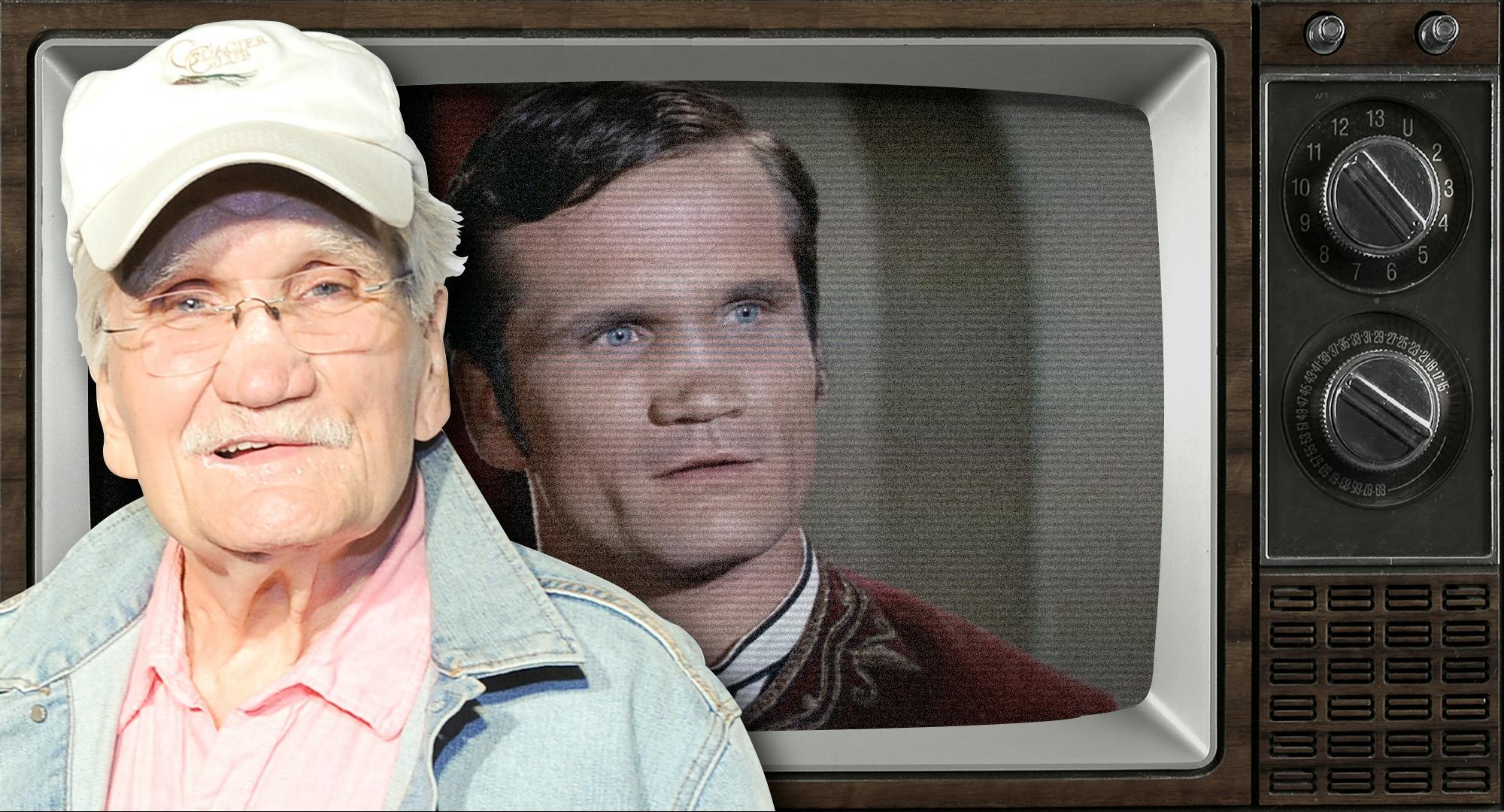
StarTrek.com
This interview originally ran in January of 2017.
Moviegoers probably know Charles Dierkop best for his roles in Butch Cassidy and the Sundance Kid and The Sting, while television viewers of a certain age likely remember him as Detective Pete Royster on Police Woman, which ran from 1974-1978. But to Star Trek fans, he’s the actor who played Morla, the Argelian whose dancer fiancée, Kara, was murdered – making him a prime suspect — in the Star Trek: The Original Series episode, “Wolf in the Fold.”
Dierkop, now 80, is mostly retired but has acted in a couple of recent projects, and he’s set to appear at The Hollywood Show in Los Angeles. In advance of that event, Dierkop chatted with StarTrek.com about his life today, career and Trek memories.
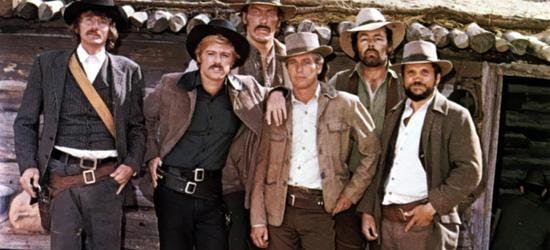
StarTrek.com: You just turned 80, which we find hard to believe. How are you feeling, and what are you up to these days?
Charles Dierkop: I feel fine. I've got a lot of drive, as far as career stuff is concerned. I'm a lifetime member of the Actor’s’ Studio. I go and participate there occasionally, in the process of acting. The business is what I'm not interested in. Acting itself I'm interested in, because it's parallel to my life as a human being, the same problems off-stage as on-stage. On-stage is a little more intense, I'm finding out. I did a couple things recently, but I'm not really interested in working that much. I live alone, so I don't have to talk to. So, it’s nice to go to the studio or to work once in a while. And I go to see plays and watch sports.
You mentioned having done a couple of projects recently. IMDB lists a short called Monty and the Runaway Furnace, and also The Midnighters.
CD:Monty and the Runaway Furnace is a short film, 30 minutes or so. I play Monty. It's about a janitor who has this antique furnace downstairs below the big corporate building. He's lost his wife, so he puts all his energies and love into talking to the furnace. He talks to it like it's his wife. The guy upstairs, who owned the big corporation before, was real friendly with me, but he died and his son took over. New Age kind of guy, the son. Wants to get rid of the old stuff, meaning the furnace and me. Therein lies the Runaway Furnace. It's a very cute film, actually.
What is The Midnighters?
CD:The Midnighters is a film about an old ex-bank robber who's dying at the time and is visited by a guy who spent 30 days in jail. I had held the money all that time, supposedly. But I had to let go of the money, because people came and threatened my wife and me. I had this nice, really good scene where they show the character, because like I said, I have a big problem with this guy, and I'm dying.
I don't know when it's going to be released, but Monty and the Runaway Furnace has been shown at several festivals, at things like Dances with Films in L.A. It’s going to be in the Durango, Colorado Festival in March. I've been going to Durango every year for the last 15 years as a juror for documentaries. That's where I did Butch Cassidy in 1968. So, I've been sort of accepted as the adopted son of Durango, Colorado. I guess I'll go back for the showing. The altitude is getting a little worse for me. But I really loved what I got to do in both Monty and the Runaway Furnace and The Midnighters. It helped me realize, "Hey, I can still do this." God knows, the longer you don't do it, you start getting a little insecure about it.
Prior to Star Trek, you had worked with Roddenberry and Robert Justman on The Long Hunt of April Savage. What you do recall of your time working with them, and did that job lead to Star Trek?
CD:Let's put it this way: We were shooting outside, at Big Bear, making this Western, and we were waiting for a setup, the next set to be set up. I was sitting, talking with this guy. He looks like a mountain man. So, we're talking about things. I forget, probably just life itself. After about 20 minutes or so I said, "By the way, you on this film?" He says, "Yeah." I said, "What are you working on with it?" He says, "I'm the producer." It was Gene Roddenberry. I was so impressed with that, because he has a humility about him that is rare with people when they have a position. They tend to have to everybody that they're in charge. Gene was just the opposite. He was really a humble guy. I was very impressed with the fact that he didn't need to tell me he was the producer. Just talked with me, a pretty young actor. That was my run-in with Gene Roddenberry. I'll never forget that one. That was a wonderful introduction.
As far as Star Trek, I have no idea. That was around 1966 or 1967. I was just trying to get work. To me it was one of those science-fiction show was like another, whether it be a Voyage to the Bottom of the Sea or Land of the Giants or Star Trek or Lost in Space, or whatever other shows were on at the time. I had no idea that this was going to turn into what it turned into.
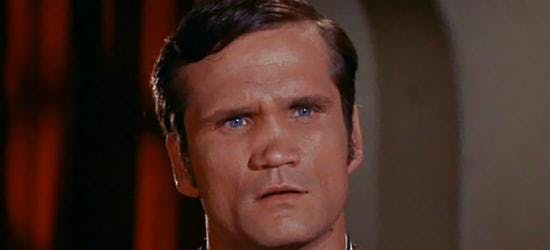
What intrigued you about Morla as a character?
CD: Well, if I’m being honest, like I said, the main thing at that point in my mind was just getting work. In retrospect... I like to personalize my work, make it personal for me, but I do remember about that I was living with this belly dancer. I was a jealous guy, so this character Morla was right up my alley. He had to mellow out. Do you remember that particular scene? So, the character was very synonymous with my own life.
I remember something else about shooting it. Years ago, we didn't have monitors when you were shooting. They would do what they call rushes. During the afternoon, during lunch hour, they would show the rushes from the shooting of the day before. I happened to go to the rushes this one day, and it was a close-up on me, a full-length close-up. There wasn’t much dialogue for me, but a lot of listening. My big face was up on the screen and all I could see was my eyes flipping, bip bip bip bip bip. I was blinking, blinking, blinking. Oh my god. I went back to continue shooting that afternoon and I was like a zombie. I made sure that I didn't move my eyeballs at all. It led me to realize that's it's not a good idea for the actor to see rushes. It puts the focus on the external aspect and not on the inside of what led to whatever your behavior was. Now we don't have that anymore, because people use monitors.
When you actually saw the finished episode, however long later, did you see some scenes with blinking, and some scenes without? Was there a difference?
That's a good question. No. I don’t think so. I have the episode and have seen it, and I don't remember saying, "Oh yeah, I was blinking right then." I guess I wasn't blinking so much after all. It was just my own idea, anyway. You looked at yourself and were critical, super-critical.
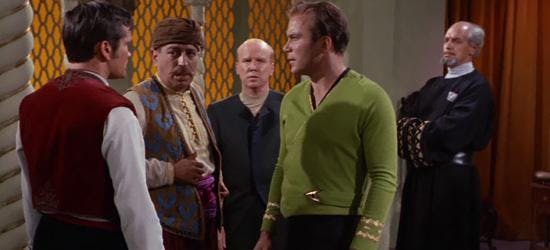
How did you get on with William Shatner? And you mentioned you were dating a belly dancer at the time. Was that dancer Tanya Lemani, who was your leading lady in the episode?
CD: Tanya was not who I was dating, but that's why I say the part was perfect for me, from the sense of emotion, because I was dating a belly dancer. I was definitely in touch with that character. Shatner, I… I also did a series called Police Woman, and that ran for four years. Shatner did an episode. He was never that open with me, for some reason. Same thing when I was on T.J. Hooker. Jimmy Doohan was a real open guy. He was really a nice guy. Everybody was basically nice (on TOS), but I'm going in to work and it was very early in my career. I had my own stuff going on and I probably wasn't too open, either. But you asked about Tanya. I got to know her a little bit. She's a nice girl. I liked her. She was very pleasant, very pretty and very talented, I thought. I see her once in a great while at the memorabilia shows, autograph shows.
You don’t do a lot of those events, but you will be at The Hollywood Show this weekend. How do you enjoy them as experiences?
CD: You’re right; I don’t a lot of them these days at all. I used to do them with more frequency, but I just don’t feel like it anymore. I like doing them once in a while. They get me out of the house. It’s fun to see people you worked with years ago. That's one of my main attractions. And the fans are also very nice, for the most part. Naturally, they're there to see you, too.
Going back to Star Trek, when did you realize it was becoming a phenomenon? And how strange is that you played one role almost 50 years ago, and people are still fascinated, still want to hear about it?
CD: It's amazing. Like I said, in the beginning, it was just another show for me, and it was another science-fiction type show. I'd done other ones. I was at a reunion event on the lot. I don’t know what anniversary. Gene Roddenberry was there, etc., etc. There's a big, long line of people outside, waiting to see people from the show come in, trying to get autographs. They were saying, "There's Morla, Mr. Morla from ‘Wolf in the Fold!’" I didn't even remember what the title of the episode I did was. They're remembering me all these years later. That's when I first really realized how big this was.
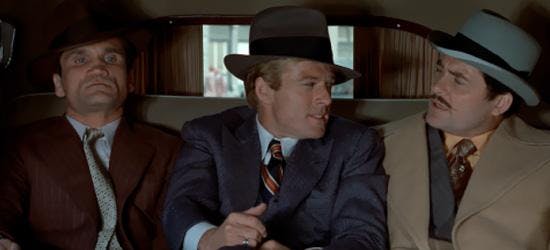
Last question. Your career has spanned six decades plus. Let’s assume someone reads this interview, isn't familiar with you, and says “What else has this guy done?" What are some of the movies and shows that you are particularly proud of, that you might suggest they check out?
CD: Well, one of the first, and probably the most recognizable, would be the movie The Sting. Robert Shaw was a very open and available human being. Most people are younger than me these days, so a lot of times they don't remember The Pawnbroker. That was with Rod Steiger, directed by Sidney Lumet. I think it was one of the last black and white features, at the time. Butch Cassidy and the Sundance Kid was another one. I worked with Newman, Redford, and George Roy Hill was the director on that. The Sting. George Roy Hill did both The Sting and Butch Cassidy.
This interview has been edited and condensed
